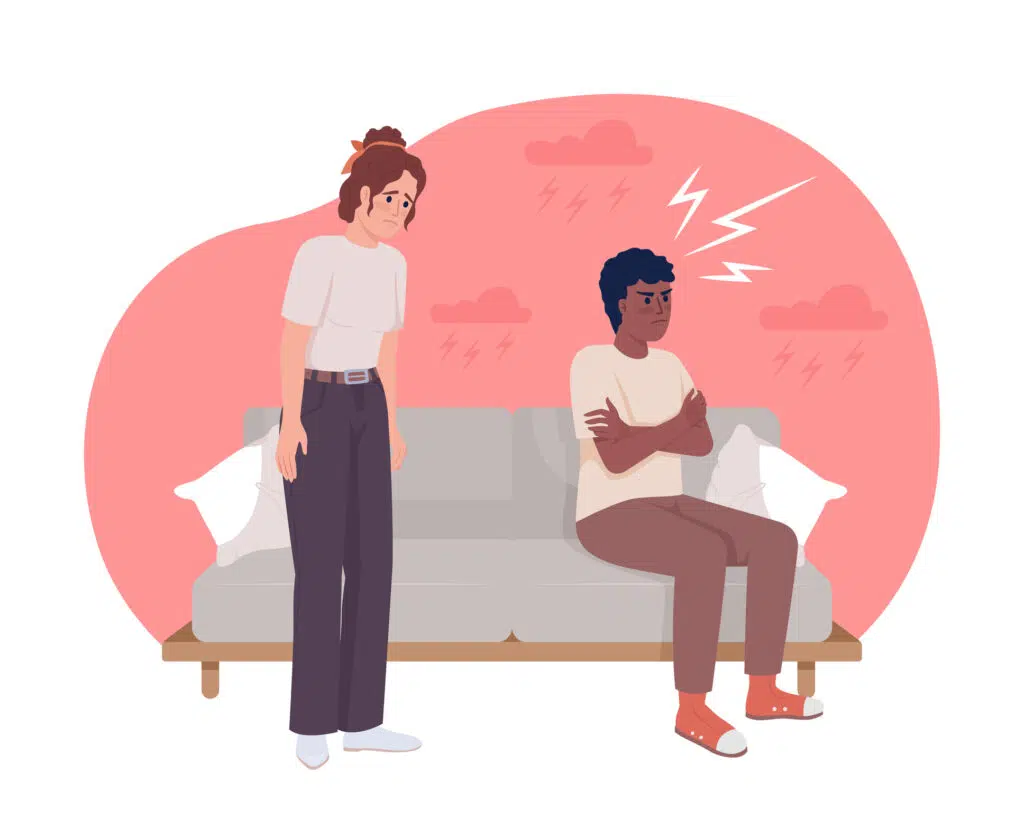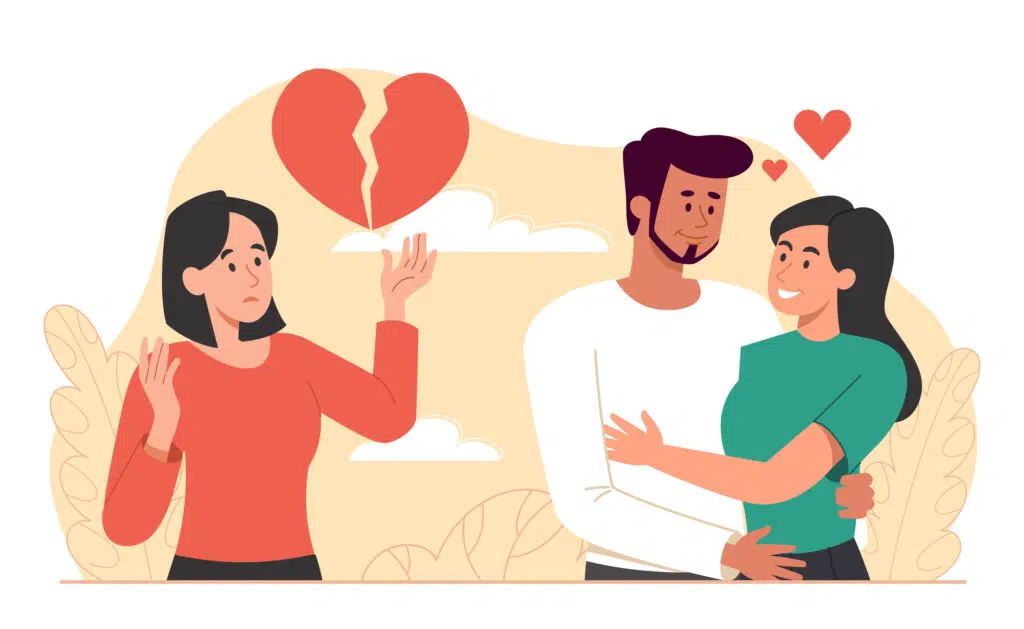Unwind From the Chaos: A Beginner’s Guide to Mindfulness Meditation for Stress Relief

Research increasingly supports the effectiveness of mindfulness for stress reduction. Mindfulness focuses on self-management and empowering an individual to manage their own stress. So, how can mindfulness meditation help with stress, and what are the best ways to get started with your own practice? Let’s dive in.
What Is Mindfulness Meditation?
Mindfulness meditation is a practice that combines a few different elements to slow down, focus on the present, and let go of judgment and negativity.
- Bring your focus to the present: You cultivate awareness of your thoughts, feelings, and bodily sensations without getting caught up in them.
- No judgment or criticism: You observe your experiences without criticism, simply acknowledging them as they arise.
- Letting go: You train your mind to detach from distracting thoughts and emotions, gently bringing your focus back to the present moment.
There are different types of mindfulness meditation, but many focus on breathwork. In general, think of mindfulness as a tool to cultivate awareness, calmness, and focus. The practice can benefit people in a number of ways, including emotional regulation, better focus, and anxiety and stress relief.
How Does Mindfulness Meditation Help With Stress?
Mindfulness practices have existed for years in traditional culture, but over time, scientific research on it has started to grow, truly demonstrating its benefits for stress, anxiety, and other conditions.
Mindfulness offers a set of tools that don’t just cover up the symptoms but address the root cause of many issues.
When it comes to stress, mindfulness works in a few interesting ways:
- Awareness and Detachment: Mindfulness cultivates awareness of your thoughts and feelings, especially negative ones that fuel stress. By observing them without judgment, you detach from getting swept away by them. This allows for a more rational and calmer response to situations.
- Relaxation Response: Meditation techniques often involve focusing on your breath, promoting relaxation in the body. This counteracts the physiological effects of stress, like increased heart rate and muscle tension.
- Improved Emotional Regulation: Through mindfulness, you develop the ability to observe your emotions without being overwhelmed. This allows you to manage difficult emotions more skillfully and fosters resilience in the face of stress.
- Breaking the Cycle: Stress often involves repetitive negative thought patterns. Mindfulness helps you become aware of these cycles and interrupt them before they escalate your stress levels.
- Non-judgmental Acceptance: Mindfulness encourages accepting your present experiences, both positive and stressful. This reduces self-criticism and frees up mental energy that might otherwise be wasted on worry or negativity.
The Science Behind Mindfulness Meditation
Here’s what some of the latest studies are saying about mindfulness, stress, and mental health:
- One study found that participants in a mindfulness-based blood pressure reduction program experienced significant improvements in healthy behaviors and self-awareness.
- Another study found that mindfulness-based stress reduction is comparable to medication when it comes to treating anxiety, with mindfulness being as effective as medication for patients with anxiety disorders.
- Researchers looked at over 200 studies and found that mindfulness-based therapy was especially effective in reducing stress, depression, and anxiety.
How Long Does It Take to Feel the Effects of Mindfulness Meditation?
One study found that a single mindfulness meditation session may enhance cognitive function. Some research suggests that at least eight weeks of mindfulness meditation are needed to see improvements in mood and emotional regulation. The same study found that four weeks was too short to see improvements.
The amount of time it takes to feel the effects of mindfulness meditation can vary from one person to another. Key parts of mindfulness meditation are consistency and technique. So, find a practice that works for you and commit to it.
Do You Need Any Special Equipment To Practice Mindfulness Meditation?
What’s great about mindfulness meditation is that you don’t need any special tools, and the barrier to entry is fairly low. That’s the beauty of it; most people can access it anywhere. Look for a quiet space, sit down, and focus on your breath.
There are mindfulness apps to help get you started and provide educational resources. Here are some of the most popular mindfulness meditation apps:
- Calm
- Headspace
- Smiling Mind (aimed at younger people)
- Ten Percent Happier
The Benefits of Incorporating Mindfulness into Your Daily Routine for Overall Well-being
Reduce Stress And Anxiety
So, how can mindfulness meditation help with anxiety and stress?
Several studies point towards mindfulness as an effective tool for managing stress and anxiety. Some research investigated how mindfulness can help reduce stress in the workplace and change the perception of work tasks. It found that mindfulness reduces stress by helping people view their tasks as less threatening and more challenging, allowing people to be more aware of their present thoughts and feelings without judgment.
Mindfulness meditation can form part of your anxiety self-care toolkit. Alongside healthy habits, good sleep, and regular exercise, mindfulness meditation is something you can do at home to help you respond to a situation more positively.
Enhance Emotional Regulation
Through mindfulness, you learn to observe your thoughts and feelings without feeling completely overwhelmed. Over time, you can develop skills to manage difficult emotions more effectively and be more resilient in the face of stress.
Break The Cycle Of Stress
It’s easy to get stuck in a cycle of stress that involves consistent negative thoughts. Mindfulness meditation helps you become aware of these cycles, improve self-awareness, and break free from the cycle of stress. Remember that mindfulness focuses on accepting how you feel without judgment and self-criticism.
What Are Some Guided Meditations For Stress Relief?
There are a number of mindfulness meditations for stress you can start to incorporate into your practice.
- Breath Awareness: Focus on your breath, feeling it rise and fall. Notice distractions, then gently return to your breath.
- Body Scan: Lie down and focus on each body part in sequence, noticing sensations without judgment.
- Mindful Walking: Pay attention to the physical sensations of walking, the sights, sounds, and smells around you.
- Mindful Listening: Focus on sounds and what you can hear around you, their qualities, and their source, without judgment.
- Guided Meditation For Stress Relief: This uses calming imagery and breathwork to promote relaxation and inner peace.
Remember to be kind to yourself and be patient. Try to practice consistently and experiment with different techniques to find the ones that work for you.
Breathe. Focus. Be Present
While mindfulness offers a ton of benefits to help you stay present and improve self-awareness, it’s not a replacement for a therapist or medication. Mindfulness meditation does have its limitations:
- Severe Mental Health: While helpful alongside therapy, mindfulness isn’t a replacement for professional treatment of severe mental health issues.
- Trauma: Mindfulness with trauma requires a therapist or trauma-informed practitioner to avoid triggering difficult memories or emotions.
- Cure-All: Mindfulness is a tool for stress management, focus, and inner peace, but it won’t solve all of your problems.
Mindfulness can help you cope better with stress, improve emotional regulation, and encourage you to accept your experiences and emotions without judgment. Therapy can provide you with tools and strategies to address specific mental health conditions. While mindfulness can support the therapeutic approach, if you’re struggling with your mental health, it’s important to seek professional help. Start your therapy journey today and book an appointment online with one of our stress specialists. We have offices located in NYC, LA, and throughout the country.

How to Move On After a Friendship Breakup
Friendship breakups can sting just as much as a romantic breakup. After all, you’re experiencing a loss of shared history and an understanding of each other that can leave you feeling lonely and isolated. Not all friendships are forever, but moving on from the loss of a friendship does take time and some self-compassion.

Signs You’re in a Toxic Relationship
A toxic relationship can chip away at your well-being and happiness. Toxic partners can be manipulative and charming, making it difficult to recognize the signs that you’re in a toxic relationship. You deserve to be in a supportive and healthy relationship.

10 Common Marriage Reconciliation Mistakes to Avoid After Infidelity
Infidelity can leave couples devastated. If you’ve been affected by infidelity and want to salvage your relationship, rebuild trust, or make a tough decision, keep reading for 10 common reconciliation mistakes to avoid after infidelity.

Survey: 72% of Americans are Stressing About the Upcoming Presidential Election
Political viewpoints in the U.S. have always been contentious, but is the impact of politics in the United States making it difficult for people to live their everyday lives? With some anticipating another brutal and long campaign season ahead of the upcoming 2024 presidential election, nearly half of Americans say politics is negatively impacting their mental health.




